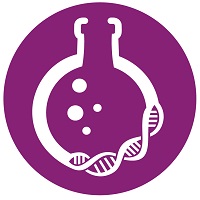Bioanalytics
Rapid Fires: Novel Instrumentations in Bioanalysis/Oligo Bioanalysis, Platforms and Methods
Capillary Assisted Vitrification: Stabilizing Critical Reagents and Biospecimens for Storage at Room Temperature
Wednesday, November 12, 2025
3:00 PM - 3:15 PM CT
Location: 221 AB

Jorge Becerra, PhD
Senior Scientist
Ambient Biosciences
Rapid Fire Speaker(s)
The performance of bioanalytical methods depends heavily on the stability and quality of the critical reagents used. However, many biological reagents are inherently unstable, requiring ultra-cold storage and having limited usable lifespans. Capillary Assisted Vitrification (CAV) is an innovative biostabilization technology that enables the long-term storage of antibodies, antibody conjugates, enzymes, and nucleic acids at room temperature. In addition, these materials can endure short-term exposure to extreme temperatures, making ambient shipping and storage a reality. The CAV process requires little or no molecule-specific formulation development and can be easily performed at the bench in under two hours, allowing researchers to create custom reagents and stabilized assay kits. In this presentation, we will outline the CAV process, highlight its potential to significantly extend the shelf life of critical reagents, biospecimens, and showcase examples of CAV-stabilized reagents in a variety of analytical methods, including ELISAs, proteomics, and molecular diagnostic techniques.
Learning Objectives:
- Explain the principles of Capillary Assisted Vitrification (CAV) and how it enables long-term, room-temperature stabilization of biological reagents.
- Evaluate the advantages of CAV compared to conventional ultra-cold storage, including simplified shipping and extended reagent shelf life.
- Identify applications of CAV in ELISAs, proteomics, and molecular diagnostics to enhance assay reliability and performance.


